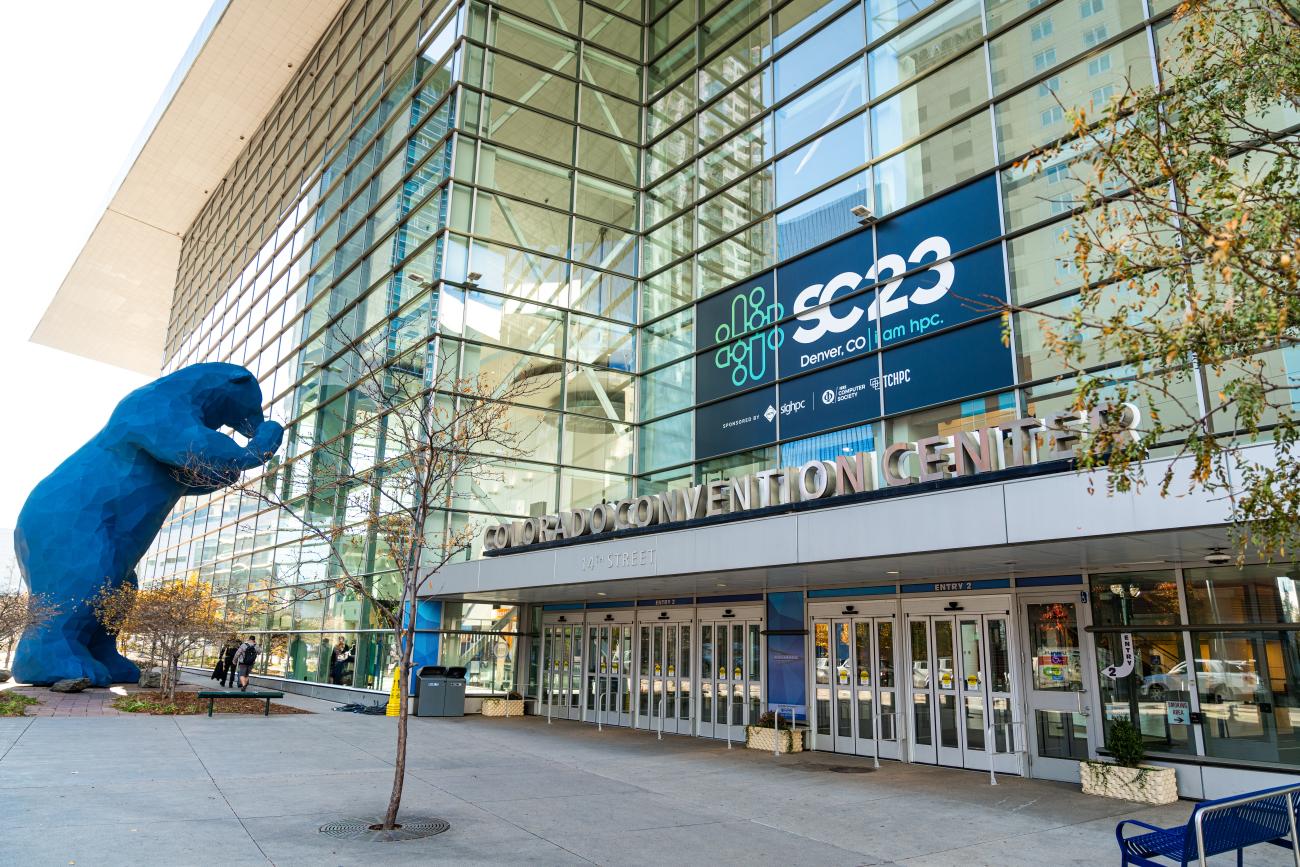Denver Convention Centre where SC23 took place (Image: Jo Ramsey, SC Photography)
The Supercomputing Conference (SC) 2023 in Denver provided a glimpse into the future of high-performance computing (HPC), networking, and storage solutions, with a focus on emerging technologies. The integration of novel approaches in computing took centre stage, particularly in the realms of artificial intelligence (AI), machine learning (ML), and quantum computing.
The conference addressed key challenges faced by CERN, notably the impending massive data production from high-energy experiments. Discussions revolved around methods and technologies to efficiently handle this data surge. Sustainability and efficiency were emphasised, with a need for performance portability across various accelerator devices. The move to 400 and 800Gb/s networking emerged as a crucial aspect of managing the expanded capacity of CERN data centres.
Collaborative opportunities for research institutions were discussed, with a focus on engaging with industry partners. “SC was an excellent opportunity to discuss face to face with our existing partners as well as meet with potential new ones, in order to put the basis for future CERN openlab projects and co-development with industry on a broad range of areas such as next generation memory and storage, built-in accelerators, AI exploitation, digital twins, distributed analysis frameworks/facilities, and novel accelerator devices,” says Maria Girone, head of CERN openlab along with her team. Green computing and energy awareness were also important points in the discussions, aligning with important goals in high-energy physics computing.
Reflecting on the conference, the CERN openlab team highlighted the rapid transformation of the HPC landscape. Trends included the continuous increase in data centre hardware power consumption, the rise of integrated and dedicated appliances, and the growing popularity of purely cloud-based services. Quantum computing, with its potential for a major impact, remained a significant consideration.

